 Microsoft has agreed – with all the enthusiasm of a child being made to eat spinach – to adopt all the “main changes” requested by the European Commission to its new version of Windows without Media player components.
Microsoft has agreed – with all the enthusiasm of a child being made to eat spinach – to adopt all the “main changes” requested by the European Commission to its new version of Windows without Media player components.
The company were found guilty by a court in 2004 of breaking EU monopoly laws, with the ruling compelling Microsoft to sell a stripped down version of Windows XP without all the embedded Media player widgets.
“Earlier today we contacted the Commission and have informed them that we have accepted all the main changes they have requested we make to the version of Windows without Media Player,” grumbled Horacio Gutierrez, Microsoft’s associate general counsel for Europe.
According to Gutierrez, Microsoft will make several modifications to the OS including technical changes to registry settings, removing references in product documents and packaging that warn certain products won’t work without Media Player and creating a software package allowing consumers to replace the absent media files.
In what some may think was a deliberate move to make the reluctantly-created product sound as appealing as last night’s kebab, Microsoft wanted to call the new version of Windows XP “Windows XP reduced Media Edition”.
The Commission was having none of it, forcing the software giant to use the name, “Windows XP Home Edition N”.
 Horacio Gutierrez, a lawyer for Microsoft, was clearly not too happy, telling Reuters that the company has “some misgivings about the chosen name, as we fear it may cause confusion for consumers about the product, but we will adopt the Commission’s name in order to move forward and accelerate the pace of the implementation process.”
Horacio Gutierrez, a lawyer for Microsoft, was clearly not too happy, telling Reuters that the company has “some misgivings about the chosen name, as we fear it may cause confusion for consumers about the product, but we will adopt the Commission’s name in order to move forward and accelerate the pace of the implementation process.”
Gutierrez added that the new version would be available to European consumers within a “matter of weeks”.
Microsoft hasn’t finished battling with the Commission, as they are yet to comply with another part of the EU judgment which stipulates that the company must open up access to server protocols.
Lawyers are wrangling over terms of the license which was prohibitive to open source software makers.
 And there’s more! Microsoft are also in disagreement with the EU over plans to appoint a trustee to monitor Microsoft’s compliance (or the complete lack of) – if the company fail to comply with the Commission’s decisions, they could face a daily slapdown of up to US$5 million – the equivalent of a cup of coffee in Bill Gates’ world.
And there’s more! Microsoft are also in disagreement with the EU over plans to appoint a trustee to monitor Microsoft’s compliance (or the complete lack of) – if the company fail to comply with the Commission’s decisions, they could face a daily slapdown of up to US$5 million – the equivalent of a cup of coffee in Bill Gates’ world.
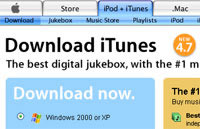 New figures released by the BPI (British Phonographic Industry) confirm that UK music fans are the numero uno, mad-for-it music buyers in the world, with each tune-loving Brit buying on average 3.2 CDs per person per year.
New figures released by the BPI (British Phonographic Industry) confirm that UK music fans are the numero uno, mad-for-it music buyers in the world, with each tune-loving Brit buying on average 3.2 CDs per person per year.  It also raises questions about recent BPI lawsuits against alleged P2P file-swappers and the promotional role the networks may be playing.
It also raises questions about recent BPI lawsuits against alleged P2P file-swappers and the promotional role the networks may be playing.  With album bundles and sales of digital EPs also doing good business in the UK, the Official UK Charts Company estimate that the total UK market for downloads topped 9 million units in 2004.
With album bundles and sales of digital EPs also doing good business in the UK, the Official UK Charts Company estimate that the total UK market for downloads topped 9 million units in 2004.  An updated version of the hugely popular Voice-over-IP (VoIP) application Skype has been released.
An updated version of the hugely popular Voice-over-IP (VoIP) application Skype has been released.  The soaraway Luxembourg-based company has so far signed up 29 million registered users for its free peer-to-peer based Net phone calling, making it one of the fastest-growing services on the Net.
The soaraway Luxembourg-based company has so far signed up 29 million registered users for its free peer-to-peer based Net phone calling, making it one of the fastest-growing services on the Net. 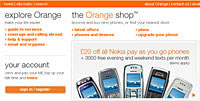 Mobile operator Orange has announced a GSM-based tracking service which it claims is both cheaper and easier to use than GPS technology.
Mobile operator Orange has announced a GSM-based tracking service which it claims is both cheaper and easier to use than GPS technology.  Electronic Tracking Systems (ETS), makers of battery powered security tracking devices under the mtrack brand, is one of the first to pilot the product.
Electronic Tracking Systems (ETS), makers of battery powered security tracking devices under the mtrack brand, is one of the first to pilot the product.  Channel Five yesterday became the first UK broadcaster to launch a legal video download store, offering DVD-quality downloads of some of the most popular features of its flagship car show, Fifth Gear, from its Web site.
Channel Five yesterday became the first UK broadcaster to launch a legal video download store, offering DVD-quality downloads of some of the most popular features of its flagship car show, Fifth Gear, from its Web site. 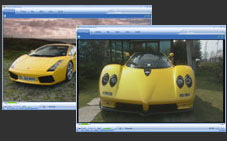 Powering the UK’s first legal video downloads store is a system developed by 7 Digital, the company behind download stores for a raft of leading music companies including Universal and EMI.
Powering the UK’s first legal video downloads store is a system developed by 7 Digital, the company behind download stores for a raft of leading music companies including Universal and EMI. 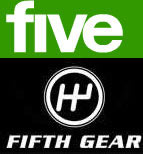 Legal music download sites have become hugely popular in recent years, but TV companies have so far not used the same technology to put programmes online – despite British viewers being the
Legal music download sites have become hugely popular in recent years, but TV companies have so far not used the same technology to put programmes online – despite British viewers being the  Commuters on London’s Tube network could soon be able to bellow out, “I’M ON THE TUBE!” if trials to introduce mobile and wireless Internet connections underground from 2008 get the green light.
Commuters on London’s Tube network could soon be able to bellow out, “I’M ON THE TUBE!” if trials to introduce mobile and wireless Internet connections underground from 2008 get the green light.  LU director of strategy and service development, Richard Parry commented, “The process we launch today is to start getting information from the market about how we could best provide a mobile phones service”.
LU director of strategy and service development, Richard Parry commented, “The process we launch today is to start getting information from the market about how we could best provide a mobile phones service”.  An LU spokesman added “Passengers would like to have mobile coverage at Tube stations but they are less keen to have it on trains”.
An LU spokesman added “Passengers would like to have mobile coverage at Tube stations but they are less keen to have it on trains”.  A large question mark hangs over the future of aggregated news sites supplied by Web companies such as Google after it was revealed that Agence France-Presse had sued the world’s most popular search engine for alleged copyright infringement.
A large question mark hangs over the future of aggregated news sites supplied by Web companies such as Google after it was revealed that Agence France-Presse had sued the world’s most popular search engine for alleged copyright infringement. 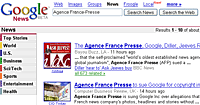 “AFP has over 600 online clients using their news services, sites like Political Gateway. Being blacklisted by the number one search engine in the world is enough to make a news site immediately drop AFP and go to another news service like AP, Reuters, UPI, and the like. We know this to be true because Political Gateway is looking at options right now.
“AFP has over 600 online clients using their news services, sites like Political Gateway. Being blacklisted by the number one search engine in the world is enough to make a news site immediately drop AFP and go to another news service like AP, Reuters, UPI, and the like. We know this to be true because Political Gateway is looking at options right now.  The UK’s mass adoption of digital TV and broadband has helped make the country the fourth most digitally-savvy nation in Europe, according a new report by Jupiter Research.
The UK’s mass adoption of digital TV and broadband has helped make the country the fourth most digitally-savvy nation in Europe, according a new report by Jupiter Research.  UK consumers will need that super-fast connectivity if they wish to enjoy bandwidth-hungry services such as high-definition TV (HDTV) and video-on-demand, already popular in France and other European countries.
UK consumers will need that super-fast connectivity if they wish to enjoy bandwidth-hungry services such as high-definition TV (HDTV) and video-on-demand, already popular in France and other European countries.  In Britain, however, only 25% of Britons said a digital camera would be their top gadget purchase of the year. Almost a quarter, 22%, said they would be buying some sort of wireless device with the largest percentage – 42% – declaring that they would be buying something “other”.
In Britain, however, only 25% of Britons said a digital camera would be their top gadget purchase of the year. Almost a quarter, 22%, said they would be buying some sort of wireless device with the largest percentage – 42% – declaring that they would be buying something “other”.  Xdrive has announced an expansion to their service that gives roaming consumers wireless access to their files through any Internet-connected cell phone, smart phone or handheld device.
Xdrive has announced an expansion to their service that gives roaming consumers wireless access to their files through any Internet-connected cell phone, smart phone or handheld device.  With a long parp on their PR trumpets, 3 notched up another first with the launch of “over-the-air” real-time multiplayer games over their network.
With a long parp on their PR trumpets, 3 notched up another first with the launch of “over-the-air” real-time multiplayer games over their network.  These console-esque games are being supported on the 3 network by the Mophun gaming engine that is being supplied to 3 by Synergenix.
These console-esque games are being supported on the 3 network by the Mophun gaming engine that is being supplied to 3 by Synergenix.  The announcement of these advanced handheld games would suggest that 3 is pro-actively targeting the lucrative console market, and looking to lure potential Gizmodo, DS and PSP customers.
The announcement of these advanced handheld games would suggest that 3 is pro-actively targeting the lucrative console market, and looking to lure potential Gizmodo, DS and PSP customers.